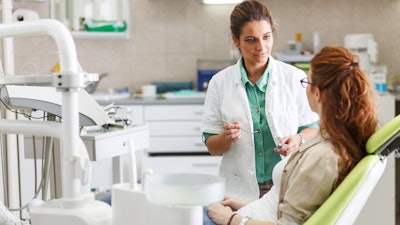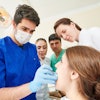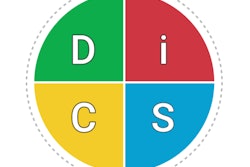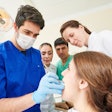
About a half-century ago, many dentists in the U.S. were extroverted and often made decisions based on values; however, dentists of tomorrow may be quite different. The review article was published on July 10 in the Journal of Dental Education.
The personalities of today's dental students are more introverted and more inclined to heavily weigh facts before making decisions, the authors wrote.
"There has been a shift in the predominant personalities of dental students in the United States in the past 50 years," wrote the authors, led by Dr. Susie Goolsby, MSHA, of Oregon Health & Science University in Portland.
School and clinical performances have been tightly linked to the personalities of dental students. With dramatic changes in the social environment during the past 50 years, it was probable that students' personalities would change significantly.
To explore shifts in personalities, a review of 18 articles that use the common personality assessment tool, Myers-Briggs Type Indicator (MBTI), was included in this study.
During the past 50 years, the predominant personalities of extraversion, sensing, feeling, and judging (ESFJ) and extraversion, sensing, thinking, and judging (ESTJ) for dental students have shifted to ESTJ and introversion, sensing, thinking, and judging (ISTJ), the authors wrote.
Throughout the years, ESFJ -- the top dominant personality before 1981 -- has dropped from about 17% to 9% among dental students. On the contrary, ISTJ, which was ranked fifth among dental students before 1981, has risen significantly from about 7% to nearly 28% and is the top personality type for the current generation of dental students, they wrote.
But why are things changing? It may be several factors, including that personalities differ between generations often due to shifts in societal norms.
With the ever-increasing use of digital technology and social media, younger generations are rapidly exposed to large amounts of information. This in turn affects how students communicate and collaborate compared to earlier generations, the authors wrote.
Though every generation has been affected by innovation and technology, the current generation entering dental school was raised in a fully digitally capable world. The consequences of this have not yet been fully realized, but access to an ongoing flow of information may erode individuals' trust in systems and make them less tolerant of uncertainty and more dependent on their own research and facts, according to the study's authors.
The study had limitations, including that the research focused solely on MBTI personality classification. Due to its popularity globally, this classification was chosen. However, other personality tests could have been used to evaluate students, which should be done in the future to validate the results of this study, the authors wrote.
Furthermore, understanding the differences in personality types may help develop effective teaching and evaluation methods for interpersonal skills in dental students, they wrote.
"The behavioral differences may influence the performances of dental students in communication styles with patients, peers, and during oral-based examinations," Goolsby and colleagues wrote.




















